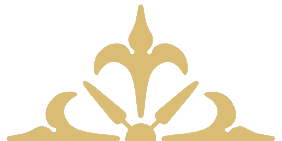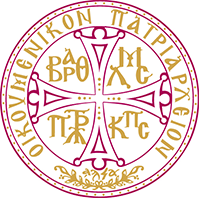ΠΡΟΣ ΑΜΕΣΗ ΚΟΙΝΟΠΟΙΗΣΗ
21 Οκτωβρίου 2009
ΝΕΑ ΟΡΛΕΑΝΗ – Ο Οικουμενικός Πατριάρχης κ. Βαρθολομαίος κήρυξε σήμερα στις όχθες του ποταμού Μισσισσιππή την έναρξη των εργασιών του Όγδοου Περιβαλλοντολογικού Συμποσίου «Θρησκεία, Επιστήμη και Περιβάλλον» με θέμα Ο Μέγας Ποταμός Μισσισσιππής: αποκατάσταση της ισορροπίας, που οργανώνεται από τον οργανισμό «Θρησκεία, Επιστήμη και Περιβάλλον» και το οποίο τελεί υπό την υψηλή προστασία και την καθοδήγηση του κ. Βαρθολομαίου.
Ο Ρωμαιοκαθολικός Αρχιεπίσκοπος της Νέας Ορλεάνης Gregory Aymond καλωσόρισε τον Οικουμενικό Πατριάρχη στην εναρκτήρια τελετή και ανέγνωσε εγκάρδιο μήνυμα του Πάπα Βενέδικτου του ΙΣΤ΄ στο οποίο ο Πάπας εξέφραζε την συμπαράσταση του και τις ευχές του για την ευόδωση της προσπάθειας φροντίδος και προστασίας του περιβάλλοντος και «της διαφύλαξης της δημιουργίας του Θεού».
Ο Οικουμενικός Πατριάρχης κ. Βαρθολομαίος στη βαρυσήμαντη εναρκτήρια ομιλία του είπε ότι «βρισκόμαστε σε μια κρίσιμη και καθοριστική στιγμή στην ιστορία μας… ένα σημείο όπου φτάνουμε τα απόλυτα όρια της ανθρώπινης επιβίωσης» και εμείς , συνέχισε, «αντί να ζούμε από το εισόδημα, ή το διαθέσιμο περίσσευμα της Γης, καταναλώνουμε το περιβαλλοντολογικό κεφάλαιο και καταστρέφουμε τους φυσικούς πόρους της Γης, ως να μην υπήρχε το αύριο». (ακολουθεί το πλήρες κείμενο στα Αγγλικά)
Μετά την Πατριαρχική ομιλία, ο διακεκριμένος ελληνοαμερικανός πρώην γερουσιαστής της Αμερικανικής Γερουσίας, Πωλ Σαρμπάνης, ο οποίος συμμετέχει στο συμπόσιο, ανέγνωσε μήνυμα του πρώην αντιπροέδρου των ΗΠΑ και νομπελίστα Al Gore, στο οποίο εκφράζει την εκτίμηση και το σεβασμό του για την επιμονή και καρτερικότητα του Οικουμενικού Πατριάρχου, απόδειξη της οποίας όπως λέει αποτελεί τον παρόν 8ο Περιβαλλοντολογικό Συμπόσιο. Ο Al Gore ήταν ο πρώτος που ονόμασε τον Παναγιώτατο Green Patriarch (Πράσινο Πατριάρχη) το 1997 όταν τον καλωσόρισε τότε στην Ουάσιγκτον.
Τέλος το βήμα έλαβε ο Αρχιεπίσκοπος Αμερικής κ. Δημήτριος ο οποίος καλωσόρισε επισήμως τον Πατριάρχη στις Ηνωμένες Πολιτείες και στην Ιερά Αρχιεπισκοπή Αμερικής, που αποτελεί Επαρχία του Οικουμενικού Πατριαρχείου.
«Βρισκόμεθα σε μια πληγωμένη πόλη, την Νέα Ορλεάνη, και δίπλα σ’ ένα πληγωμένο ποταμό, τον μέγα ποταμό Μισσισσιππή και είμαστε εδώ για να συμβάλλουμε με όλες μας τις δυνάμεις στη θεραπεία και των δύο», είπε ο Αρχιεπίσκοπος Δημήτριος και πρόσθεσε ότι ο Παναγιώτατος «είναι ο θεραπευτής Πατριάρχης, ο οποίος με πολύ μόχθο, ασταμάτητα και σκοπίμως υπηρετεί κατά τρόπο εξαιρετικό και εντυπωσιακό την οικολογική θεραπευτική διαδικασία και φροντίζει τις πληγές που έχουν επιφέρει οι άνθρωποι στη φύση».
Περισσότερες πληροφορίες και φωτογραφίες στο διαδίκτυο www.usvisit2009.org και www.goarch.org
Πληροφορίες: Γραφείο Τύπου
Σταύρος Παπαγερμανός
Τηλ.: 212.570.3530 • 718.415.5850
Ακολουθεί το κείμενο της ομιλίας του Οικουμενικού Πατριάρχου στα Αγγλικά:
Opening Address of His All Holiness Ecumenical Patriarch Bartholomew
Symposium The Great Mississippi River: Restoring Balance’ (New Orleans, 21 October 2009)
It is with great pleasure that we welcome you all to the official opening of Symposium VIII, entitled “The Great Mississippi River”.
This Symposium is in many ways both historical and unique. This river comprises a microcosm of our planet. In its waters, we observe many of the world’s ecological issues. We are humbled in its presence. We have come to listen to its story, to learn from its history.
Let us consider our own presence on this great river.
As the Mississippi links the prairies to the sea, we ourselves form the link between the past and the future. Science has developed a theory to explain the beginning of the Universe almost 14 billion years ago, the beginning of simple life forms some 4 billion years ago and the birth of human beings a mere 160,000 years ago.
Although the time we have been on the planet is insignificant in the context of the life of the planet itself, we have reached a defining moment in our story.
We have expanded our dominion over Nature to the point where absolute limits to our survival are being reached. We have lost half of the great forests of the world to the demand for timber and for conversion to agriculture, without thinking that these giant wet sponges are responsible for the delivery of much of the fresh water.
Irrigation for agriculture takes 70% of global demand for water, and – almost unimaginably – some of the world’s greatest rivers are so depleted by the influence of humans that they no longer flow to the sea; and those that do, carry in their waters all the chemical fertilizers, herbicides, insecticides and waste materials they have collected along their course. Desertification is increasing on land at the same time that the fish stocks of the oceans are depleted by over exploitation; and those that remain are being poisoned by toxic materials dumped carelessly in their habitat. Instead of living on income, or the available surplus of the earth, we are consuming environmental capital and destroying its sources as if there is no tomorrow.
The dilemmas we are faced with are the problems created by human beings.
Having struggled for centuries to escape from the tyranny of hunger, disease, and want, the technological advances of the last half century have created the illusion of us being in control of our destiny as never before. We have cracked the code of DNA, we can create life in test tubes, we can genetically modify crops, we can put men upon the moon – but we have lost our balance, externally and within. Wealth generated in the developed world has not put an end to suffering. Technological achievements were not able to contain the wrath of nature witnessed in this area only four years ago. The explosion of knowledge has not been accompanied by an increase in wisdom. Only wisdom could make us realize that the Creation is an interdependent, undivided whole, not an assemblage of isolated, unrelated parts that can be eliminated, replaced or modified as we see fit. Even the smallest human intervention, even the minutest change in the natural order brought about by human action can have – and does have – long term devastating effects on the planet.
In addition to seeking balance between ourselves and our environment, we need to find balance within ourselves, reassessing our values as well as what is valuable. Let us remember that whoever we are, we all have our part to play, our sacred responsibility to the future. And let us remember that our responsibility grows alongside our privileges; we are more accountable the higher we stand on the scale of leadership. Our successes or failures, personal and collective, determine the lives of billions. Our decisions, personal and collective, determine the future of the planet.
As we look at this great river and explore the challenges faced by local communities, let us search for solutions from the perspective of Faith, mindful that we are all in the same fragile boat of life – that we are living defining moments in history, and that we are living them together in Truth, in Love, in Hope and above all, in Responsibility.
== 30 ==



